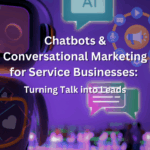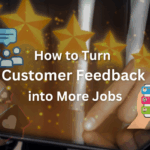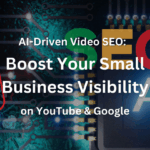
Small businesses can always harness the promotional benefits of local events to build strong relationships with customers. Such events create a different impact because they build memorable and fun experiences. It can be a local expo or a community fair. Such local events are buzzing with prospects.
It is recommended to use the following strategies to harness the opportunities created by such local events.
Identifying & Choosing the Right Local Events
The first step to identifying the right local events is to gain a better understanding of your target audience and their interests. The knowledge can help you develop a deeper connection with your audience and improve your SEO.

Participating in local events can itself be a great opportunity for interacting with your target audience and understanding their interests. This understanding can also help improve your leveraging efforts’ effectiveness.
Identifying the right local events requires researching their calendars. You can gain knowledge of local events from the following platforms:
- Community Boards & Local Newspapers: Community centers, local newspapers, and libraries can carry listings of upcoming local events.
- Social Media: Facebook and many other social media platforms have event sections focused on local areas.
Strategies For Effective Participation
You can take several steps as part of your strategy for effective participation in local events. These include:
Setting Up Engaging Booths

When setting up a booth for a local event, make sure to create an appealing and interactive space. The booth must catch the attention of your prospects and engage them. You should look at the booth as the physical manifestation of your business. Besides being attractive and engaging, the booth should convey your unique value proposition. Use SEO techniques to draw more attention to your booth.
Offering Exclusive Event Promotions
While it is important to participate in the right local events, it is equally important to make this participation known. In other words, you will have to engage in event promotions.
Using Social Media

When you use social media for event promotions, you can reach both your followers and their networks. As a small business owner, this is a cost-efficient approach. These platforms also make it relatively easier to reach a large audience. Create and run social media campaigns to share updates on your event participation. The use of the right creatives can help you spread the word about your engagements and initiatives.
Collaborate with Other Local Businesses

Another important step is to let everyone know that you are part of the local business community. This requires collaborating with other local businesses when promoting your event participation.
- Reach out to other small businesses and find ways to promote each other
- This can include co-hosting events or joint marketing strategies
Such collaboration can build a stronger sense of community, which can be appealing to consumers. Combining promotional efforts with other businesses can also help you reach a larger audience. The overall focus should be on building a stronger presence in your local small business networks.
Sponsoring Event Segments
You can sponsor event segments to gain exposure and show support for your local community. This can help build strong brand awareness. As a sponsor, you will also be seen as a community supporter, improving your credibility. Some of the modes of sponsorships can include:
- Brand mention during the event
- Strategic logo placement
- Directly addressing the audience
- Sponsoring kids’ area
- Offering free product samples
You can also co-host activities as part of the event. Once your brand name gets associated with a popular event, any positive reputation the event garners will also reflect on your business. This can help expand your customer base, as more consumers will want to get associated with your brand. Additional benefits include increased trust with other businesses.
Post-Event Follow-Up
There is more to post-event follow-up than just being a courtesy. It has strategic importance and can help drive real-world benefits. There are many ways that your post-even follow-up can benefit your organization. This includes:
- Solidifying Connections: This demonstrates that you care about the community and value their experiences and opinions.
- Driving Conversions: Continuing conversations with your attendees helps increase the chances of converting leads into customers.
- Brand Strengthening: Post-event follow-up helps keep your brand top-of-mind while creating opportunities for upselling, cross-selling, and repeat business.
It can also play an important role in helping gather feedback. A few of the different ways you can run post-event follow-up campaigns are as follows:
Personalized Emails

Running email campaigns can seem like a normal activity as a post-event follow-up strategy. However, it should not be taken lightly. 75% of marketers regard email marketing highly for the ROI it offers.
- Make sure to send out the first thank-you email within 48 hours
- The messages should be concise and focused
- Make sure to include a brief recap of event highlights
- Besides the thank-you, request feedback, share takeaways, offer bonus content, and invite them to upcoming events
Special Offers

Post-event special offers can also help drive further engagement. Options can include early bird registrations for upcoming events, special discounts, and swag bags containing promotional items. It is recommended to customize the offers based on the attendee’s preferences. You can use the data from the event or feedback to create specialized discounts for the attendees.
Measuring ROI
Every time you participate in a local event, it is important to measure the ROI. The information gathered should then be used to refine your future engagement strategies. Here are the key metrics to be considered when measuring the ROI of your local events:
- Overall Cost: This covers all the different expenses including travel, venue rental, marketing materials, and catering.
- Attendance: This is an important metric that can help you better understand the success rate of your participation. A high attendance rate means that the event has attracted a lot of prospects.
- Engagement: Next, you should measure attendee engagement to understand how they interacted with the event. The following metrics can help you determine what worked and what didn’t:
- Number of sessions that were attended
- Number of questions asked in the Q&A sessions
- How long each session lasted
- Lead Generation: Measure the number of leads generated to find out how effective your lead-generation strategies are. This information can also help identify areas of improvement.
- Sales: Measure the number of deals generated and revenue to measure the event’s ROI.
Conclusion
Local event participation can help your business gain actionable insights and deepen your community ties while also improving local brand recognition. One of the greatest benefits of this strategy is it lets you directly connect with your target audience. At events, you have a lot of opportunities to chat directly with your audience about your products or services. Another advantage is that events allow you to expose more people to your brand. As more consumers are exposed to your booth, more people will get familiar with your brand. These events eventually help establish your business as part of the local community.
Do you want to explore the benefits of local event participation to grow your business? The Clear Imaging team can help you promote your brand and run post-event follow-up campaigns to drive high ROI. For more information, feel free to contact us at 800-380-6942. You can also write to us and we will get back to you at the earliest.






